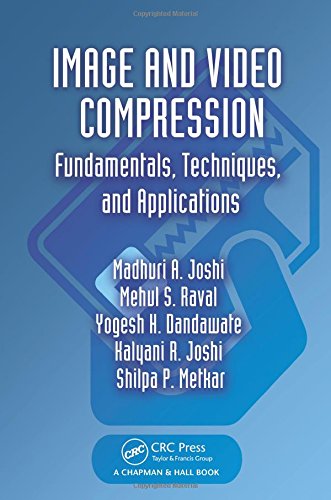

Most ebook files are in PDF format, so you can easily read them using various software such as Foxit Reader or directly on the Google Chrome browser.
Some ebook files are released by publishers in other formats such as .awz, .mobi, .epub, .fb2, etc. You may need to install specific software to read these formats on mobile/PC, such as Calibre.
Please read the tutorial at this link. https://ebooknice.com/page/post?id=faq
We offer FREE conversion to the popular formats you request; however, this may take some time. Therefore, right after payment, please email us, and we will try to provide the service as quickly as possible.
For some exceptional file formats or broken links (if any), please refrain from opening any disputes. Instead, email us first, and we will try to assist within a maximum of 6 hours.
EbookNice Team

Status:
Available4.7
28 reviewsImage and video signals require large transmission bandwidth and storage, leading to high costs. The data must be compressed without a loss or with a small loss of quality. Thus, efficient image and video compression algorithms play a significant role in the storage and transmission of data.
Image and Video Compression: Fundamentals, Techniques, and Applications explains the major techniques for image and video compression and demonstrates their practical implementation using MATLAB® programs. Designed for students, researchers, and practicing engineers, the book presents both basic principles and real practical applications.
In an accessible way, the book covers basic schemes for image and video compression, including lossless techniques and wavelet- and vector quantization-based image compression and digital video compression. The MATLAB programs enable readers to gain hands-on experience with the techniques. The authors provide quality metrics used to evaluate the performance of the compression algorithms. They also introduce the modern technique of compressed sensing, which retains the most important part of the signal while it is being sensed.